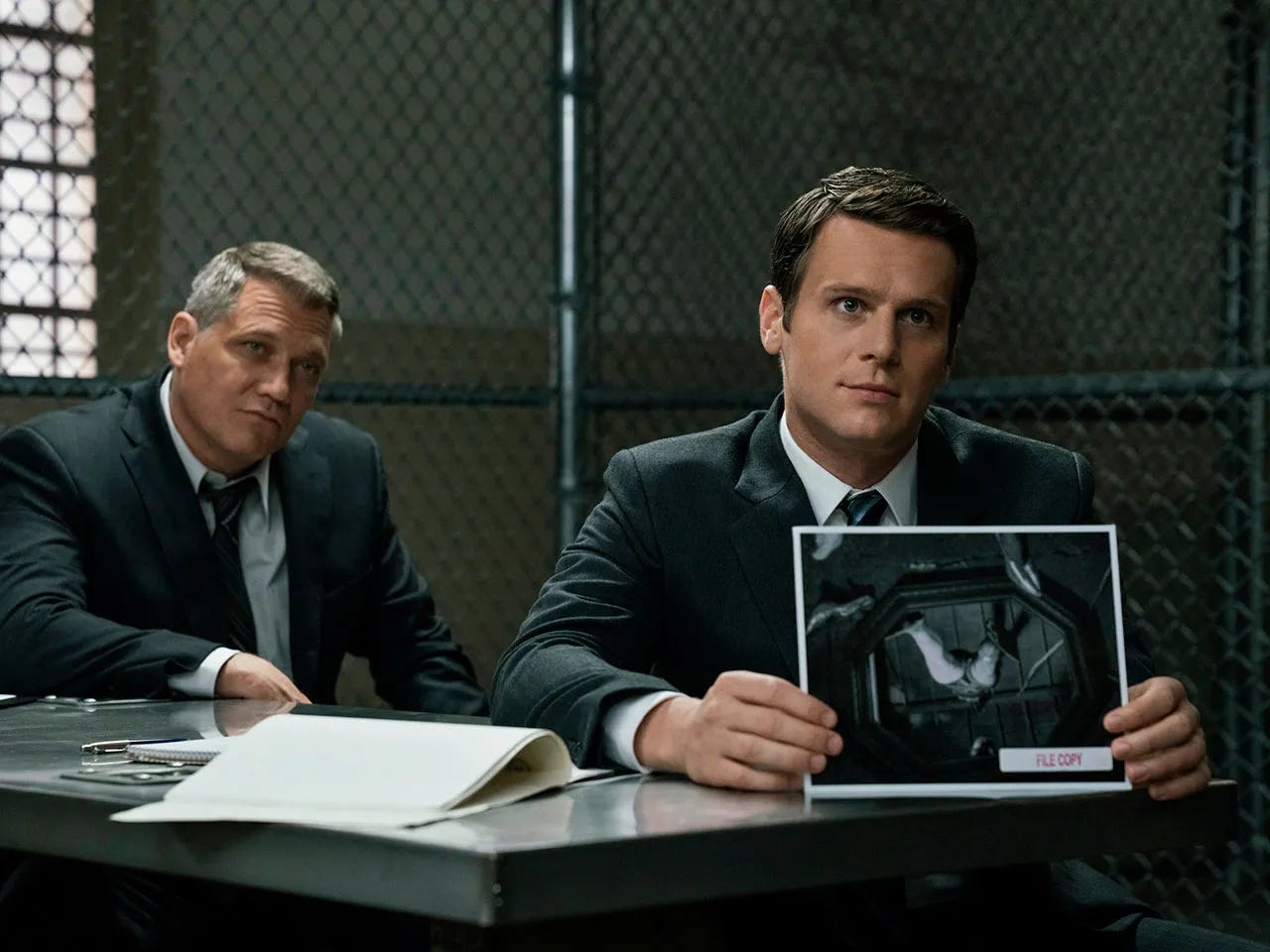Richard Claydon is not a big fan of organizational psychology. Me, I think there are good things and bad things.
I want to talk a bit about psychological profiling. Now if I say “psychological profiling”, you probably picture Silence of the Lambs and Mindhunter and serial killers. Those FBI profilers who are able to enter the mind of a monster (1).
Most of your colleagues are not serial killers (2). However psychological profiling is rife in the workplace.
Over the years I have been asked to take:
Myers-Briggs Type Indictor (MBTI)
Enneagram
Herrmann Brain Dominance Instrument (3) (HBDI)
DiSC Profiles
Belbin Team Roles
Clifton Strengths Assessment
Ironically I have not been asked to take the Big Five (4) Personality Test - despite it being the one with the most academic research to support it. It just doesn’t have the marketing budget. And that’s what matters here.
Over time I have learned better than to criticize any of these things. Someone important has spent good money on them and does not want to be made to look a fool. I think senior executives like these tests because they make visible and things quantify that are invisible and qualitative. And if you can make something visible and quantitative then you can delude yourself that you can manage it.
Now critique of these tools is as commonplace as the tools themselves. Anne Murphy Paul and have written books on this. Blake Jelley has done a literature review on their effectiveness. I want to say that I do think they have roles to play in giving individuals and teams relatively neutral ways of discussing behaviours and personal differences. In the Drinking Dialogues session (which included someone that used to work for one of the test providers), a lot of us said that we found them useful in our 20s - at a point in our lives when we were trying to find out who we were.
So I think they have some limited validity. But I also think they can be used to label people (“he’s such an INTJ”) and to excuse bad behaviour (e.g. “It’s not my fault I’m always late, that’s my P function”). I would under no circumstances use them for hiring or promoting someone. I am far more interested in what you have done and how you behave with me than I am in whether you are a Protector or a Romantic.
Coincidentally I was with a group of new managers that my employer has unwisely entrusted to my tender mercies this week. I introduced them to the Belbin team roles framework. I like Belbin (or rather dislike it less) because a role is not something you are but something you do or perform. And you can often perform more than one role.
No one likes being type cast.
“Congratulations, you are an ISFP. And like most ISFPs, a multiple murderer.”
(1) Which is rubbish.
(2) Although we all have our suspicions.
(3) Which frankly sounds like something you’d find in a dungeon.
(4) Not the Fantastic Four.




Preferences shift with time/context, for that reason Clifton strengths and Belbin can be interesting conversation starters. The trick in all this is of course knowing where to stop.
I find them to be useful but certainly not to type-cast someone. I always find it interesting that the ones most opposed typically hate the idea that they aren't some unique snowflake and yet run around behaving like all the typecasts but poorly.